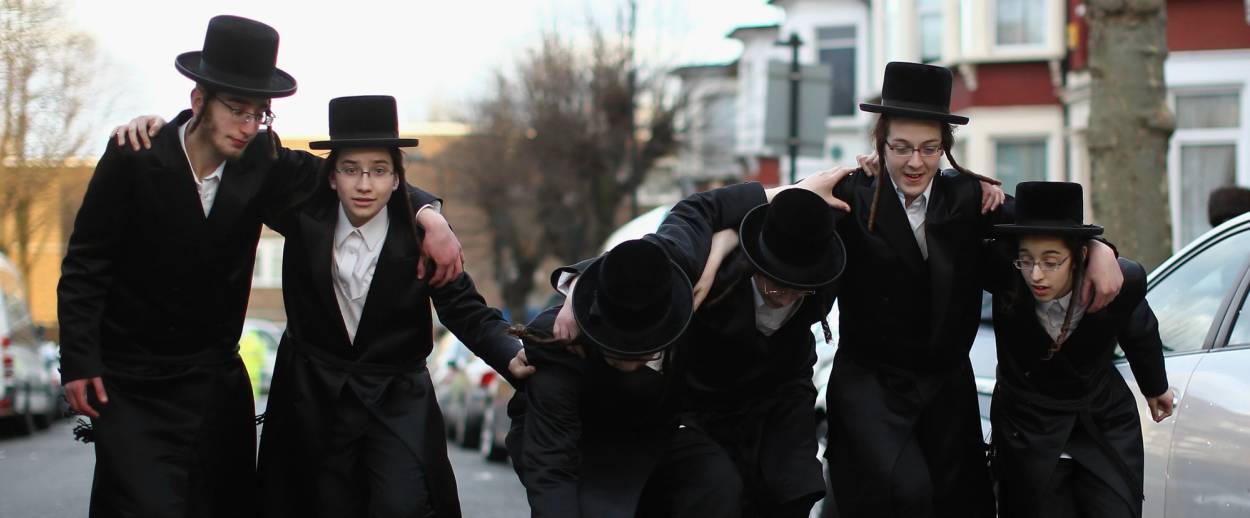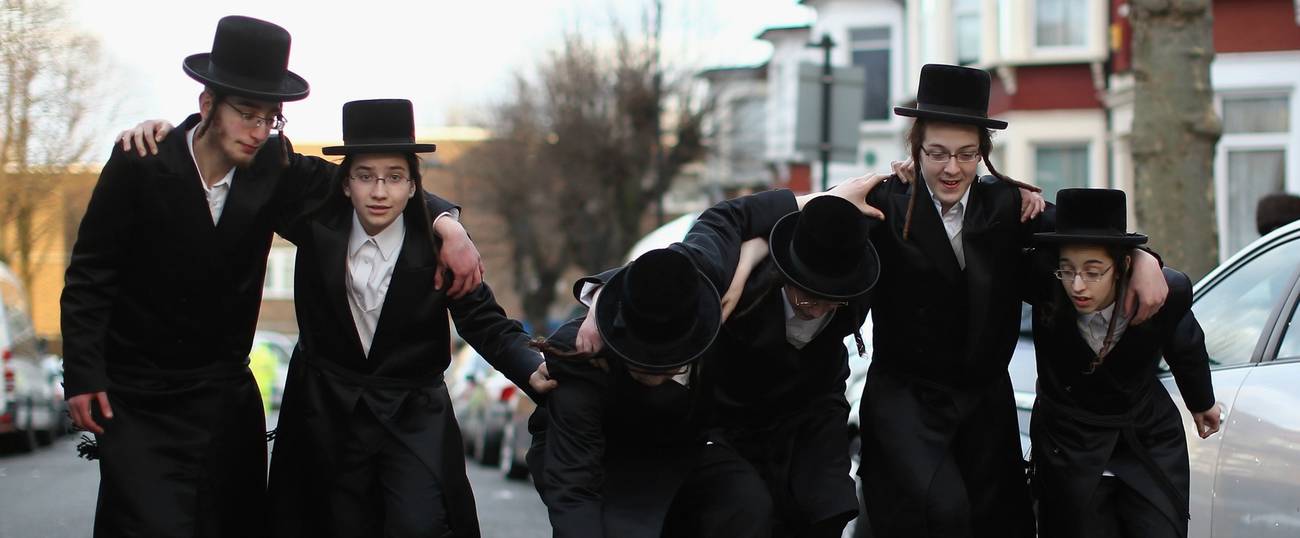Poll: Jews in Britain Are Viewed Favorably
A new study from pollster YouGov paints a comparatively positive picture of the way Jews are perceived in the U.K. despite increasing tension in the region




In light of last year’s dramatic spike in anti-Semitic incidents in Britain—the highest since 1984 when anti-Semitism watchdog CST began keeping records—British Jews could be forgiven for feeling anxious. A new poll, however, by British polling agency YouGov, provides some comforting news: British Jews are generally regarded very favorably by their fellow citizens.
Participants in the survey, released on December 14, were presented with various cross-sections of British society, divided by age, sex, and religious/ethnic affiliation, and asked whether they have specific positive and negative qualities. YouGov then calculated the averages of net respondents holding positive and negative views and produced an “overall” score, a rule-of-thumb measure of how each group is perceived. The results were derived from surveys with at least 1,500 participants, who YouGov claims are representative of the British adult population (the raw data is not publicly available).
It transpires that Jews are the most favorably regarded group from the study (overall score 54.6), when set against Chinese, Afro-Caribbeans, Muslims, Pakistanis, Poles, Australians, and whites. For comparison, Britain’s majority white population scores only 44, dragged down by extremely negative perceptions of white youth.
Against this benchmark, we also learn that women, Conservative voters, people over 40, and members of the middle class view British Jews more favorably than the average citizen. Conversely, British Jews are viewed less favorably by men, Labour voters, people under 40 and members of the working class, than by the average citizen.
Young Jews are considered particularly well behaved in comparison with their peers. Young Jewish men are seen as the least likely to have had many sexual partners (they are assumed to get as much action as Chinese men in their sixties). They are also considered the least violent or likely to take drugs, the second-most intelligent and polite (behind the Chinese), and the least likely after Muslims to get drunk frequently. Of all women in their 20s, Jewish women are considered the most honest and helpful.
Indeed, the results appear to corroborate the ADL’s conclusion, that anti-Jewish prejudice in Britain is very low, in fact among the lowest in Europe. Enmity, however, evidently can and does coexist with broad amity. Indeed, there is no necessary contradiction between a perception of Jews as monogamous, intelligent and dry, and other hostile prejudices. Police recorded 499 anti-Semitic incidents in the 12 months from July 2014, a total that was fewer than Islamophobic offenses but 6 times more per capita. It seems that increasing hostility to Israel, and a failure to control home-grown Islamic radicalism, will certainly aggravate the situation. These findings are no palliative.
Nevertheless, the pitchforks are not out. Jews are generally regarded as good citizens, and in the fight against anti-Semitism, they can certainly rely on this goodwill.
Previous: Crisis of Confidence for British Jewry
Eylon Aslan-Levy is an Israeli news anchor and political commentator. He is a graduate of Oxford, Cambridge and the IDF.